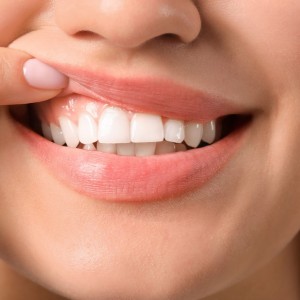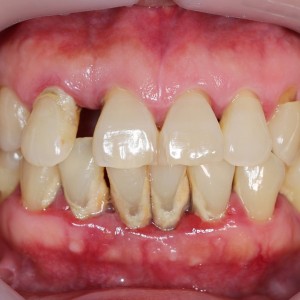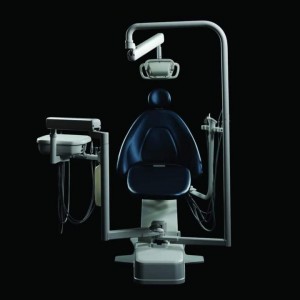
Why should we advise to our patients toothpaste based on sodium bicarbonate?
Lara Figini
Dental caries and periodontal disease are the most prevalent chronic diseases both in children and adult. To reduce and avoid their onset and development, it is necessary to perform a primary prevention on patients. In dentistry, prevention consists of instructing the patient to maintain a suitable oral hygiene at home and to undergo regular checks by the dentist. The American Dental Association’s (ADA's) recommendation is to brush for a minimum of 2 minutes, 2 to 3 times per day, as well as to floss and to use a interdental brush at least once a day. In addition, the dentist may recommend a certain type of toothpaste to fulfill the specific needs of the patient.
Therefore, what kind of toothpaste can a dentist suggest to a patient without particular dental problems?
A review published in Jada journal has examined scientific studies on commercially available toothpaste, analyzed their components and concluded that those based on sodium bicarbonate decreased the development of caries and gingivitis. Furthermore, this molecule is biocompatible with the other components present in toothpastes, such as fluoride. The actions produced by sodium bicarbonate are three: mechanical, chemical and antimicrobial.
- The mechanical action guarantees the elimination of bacterial plaque.
- The chemical action is guaranteed by its basicity that acts as a buffer to the acidity present in the oral cavity. It is known that the critical pH of the enamel is 5.1-5.5. After ingesting food, the pH of the oral cavity falls below this critical pH, to 4.5/5, and this causes the dental enamel demineralization. Generally 1-2 hours are required to return to the normal pH; but if the patient uses a toothpaste with sodium bicarbonate, its basicity is able to quickly buffer the post-prandial acidity and to bring the oral pH back to normal in a short time. This action reduces the risk of developing caries (Dawes 1996).
- For what concern the antimicrobial activity, it has been shown that Streptococcus mutans is more sensitive to sodium bicarbonate than other toothpastes with only fluoride. It is bactericidal at concentrations ranging from 75 micromolar per Liter to greater than 10 millimolar per Liter for gram-negative facultative bacteria found in dental plaque biofilms, such as Actinobacillus actinomycetemcomitans, Haemophilus aphrophilus, Eikenella corrodens, and Capnocytophaga gingivalis. It was also found that bactericidal concentrations of the combination of hydrogen peroxide and baking soda exhibited synergistic antimicrobial activity. In addition, the baking soda plus fluoride dentifrice was able to inhibit both smooth surface and fissure caries.
For all these reasons the patient should be advised to use toothpaste in which sodium bicarbonate and fluoride are present.
For additional informations:
- Effect of baking soda in dentifrices on plaque removal, Srinivas R. Myneni, JADA 148(11 suppl) nov 2017
- American Dental Association. Mouth healthy. Brushing your teeth. (Accessed September 9, 2017)
- Effect of a bicarbonate-containing dentifrice on pH changes in a gel-stabilized plaque after exposure to sucrose. Dawes C., Compend Contin Educ Dent Suppl. 1996;17(19):S8-S10.
Italian version: https://www.odontoiatria33.it/igiene-e-prevenzione/15391/perche-consigliare-ai-nostri-pazienti-dentifrici-a-base-di-bicarbonato-di-sodio.html
 Related articles
Related articles
Oral Hygiene & Prevention 19 February 2026
This study evaluated the strength of the association between three widely used clinical indexes considered as distal behavioural indicators of attitude-related oral status and secondary implant...
Oral Hygiene & Prevention 04 February 2026
Impact of oral hygiene on oral health-related quality of life of preschool children
To assess the impact of oral hygiene of preschool children and parental attitude on children's oral health-related quality of life (OHRQoL).
Oral Hygiene & Prevention 05 January 2026
To assess effectiveness of an oral health education (OHE) programme on oral hygiene knowledge, practices, plaque control and gingival health of 13- to 15-year-old school children in Bangalore city.
Oral Hygiene & Prevention 10 December 2025
Designing school programmes to be effective vehicles for changing oral hygiene behaviour
Schools are a commonly used setting for dental health education, health promotion and interventions with preventive agents.
Oral Hygiene & Prevention 24 November 2025
Oral hygiene measures are put into practice in order to maintain an oral environment free of germs and diseases.
 Read more
Read more
News 27 February 2026
Align Partners Capital Management Inc. (“Align Partners”), a shareholder of Dentium Co., Ltd. (“Dentium” or the “Company”), has submitted formal shareholder proposals for inclusion in the...
News 27 February 2026
Angelalign Technology Inc. (6699.HK) (“Angel”) said a ruling by the Unified Patent Court of Düsseldorf, Germany, that it preliminarily cease its use of certain software functions that...
Prosthodontics 27 February 2026
Prosthetic implant rehabilitation using the scan-analog protocol: a clinical case
A digital workflow for prosthetic implant rehabilitation can start either from intraoral scans or from the scan of the patient cast models. However, the possibility of scanning oral impressions is...
Editorials 27 February 2026
Texas A&M College of Dentistry recently entered into an agreement with Shear Kershman Laboratories and medical device company Innovative MedTech Inc. to study BioViscid, a pharmaceutical delivery...
News 27 February 2026















